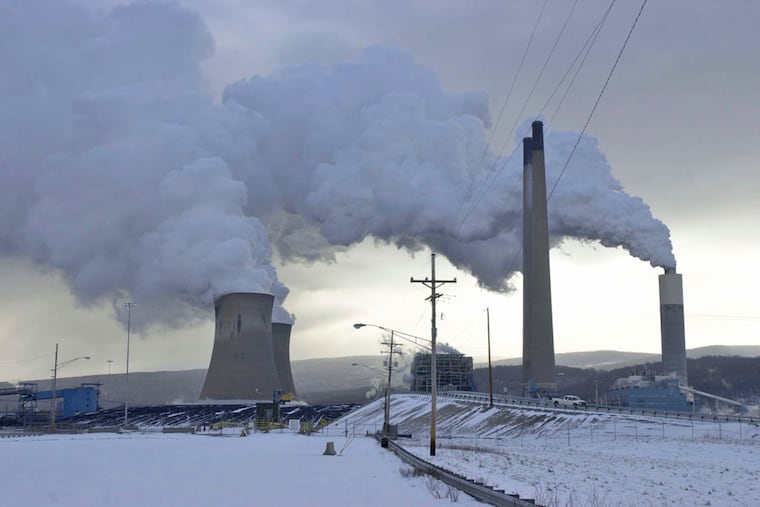To get action on climate change, change the subject
As long as climate change continues to be thought of as an environmental issue that drives partisans into their respective corners, inaction will prevail.

Rising sea levels.
Stronger hurricanes.
More frequent droughts and heat waves.
Significant changes in rainfall.
These are just a few of the nonreversible and ongoing effects of climate change, according to most climate scientists. These predictions of catastrophic change should be enough to focus our attention on addressing the climate crisis, but stalemate and incoherence are probably the best words we can use to describe America’s policy response to the issue.
It’s not because people don’t recognize the problem. National polling shows that more than three in four (76%) adults see strong evidence that temperatures have risen over the past 40 years. And most Pennsylvania voters, about three in five (59%), believe that climate change is already causing problems, with some saying they have personally experienced a problem resulting from climate change. In fact, climate change denial is pretty rare. Only one in 20 (6%) registered voters in Pennsylvania do not believe that climate change is taking place. Voters clearly accept that climate change is happening.
But knowing something does not guarantee behavioral change because there are many psychological barriers that prevent individual action. Some people are unsure about climate risks. Some people may not know how to change their own behaviors. Others may simply think that climate change will happen in the future or in other places.
Although many voters believe climate change is causing problems now, only about a third of voters say they have personally experienced a problem created by climate change. Mitigation efforts create immediate costs, and for some, immediate pain, raising another barrier to action.
These known psychological barriers are exacerbated by the fact that some people feel any action they take will make little difference. People also have other more pressing and immediate priorities for themselves and their families. At the moment, many more citizens are concerned about the economy (24%) — notably the effects of inflation on their family finances — and our political gridlock (21%) than they are concerned about the environment.
Heading into the May primary election, only 2% of registered voters in the state said that environmental issues were the most important problem facing the state, and a similar, tiny share of voters told us that environmental concerns were the leading issue driving their preferences in the U.S. Senate primaries. Voters clearly have other priorities despite the known consequences of inaction on climate change.
While there is a long list of reasons that people seem to care less about climate change than climate activists think they should, the main barrier is in how we think and talk about the problem. Fundamentally, we need to recognize that linking climate change to environmental issues has limited our collective will to act. Climate change has become the main driver of concern about environmental problems in recent years. Until about 2000, concerns about the environment encompassed issues like pollution, resource management, and protection of endangered species, among other topics. But since 2000, climate change has become synonymous with concern about the environment.
Linking climate change to the environment has led us to politically polarized opinions about what actions to take and, consequently, to policy stalemate and incoherence. Framing climate change as an environmental issue collides with the long-standing conservative critique of environmental regulation, and Republican efforts to reduce or eliminate those regulations.
This environmental framing feeds polarization by aligning perspectives on climate change with partisan identity, making concerns about the environment deeply partisan. When the Center for Opinion Research at Franklin & Marshall College asked voters in August about climate change, nine in 10 (86%) Democrats, six in 10 (62%) independents, but only three in 10 (28%) Republicans believed that climate change is causing problems now.
The path forward begins by reframing the debate in a way that is less likely to trigger polarized political responses. This means emphasizing complexity and the complications and trade-offs associated with any solution and finding common ground so that small changes can lead to big changes.
A clear policy focus will not happen as long as climate change continues to be thought of as an environmental issue that drives partisans into their respective corners.
Berwood A. Yost is the director of the Floyd Institute for Public Policy and the Center for Opinion Research at Franklin & Marshall College. @FandMPoll